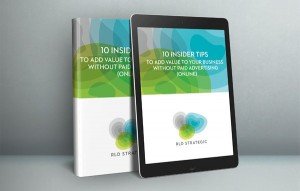Strategic Entrepreneurship Advice
With the International Champions Cup looming ever nearer; I am reminded of the correlation between running an elite sporting team and some business management principals. Australian soccer has enjoyed an unprecedented surge in popularity this year and that’s due in no small part to Ange Postecoglou – the coach who orchestrated our stunning victory in the recent AFC Cup.
Our Socceroos have always been seen as underdogs in the grand scope of the world game. Yet today, they are continental champions. It’s a classic Cinderella tale to remind us that anything worth having is also worth struggling for. As we strive to progress in our own capital ventures, I encourage each and all of you to heed these simple lessons…
Strategise for the Long Term
Quitters never win. When we consider brands like Google and Apple, it’s clear that great empires can grow from humble beginnings. Likewise, the Socceroos have overcome great odds to be the victors they are today.
When groups were drawn for the 2014 Brazil World Cup, local journalists called it a “nightmare” situation. Hailed as the “group of death,” we were pitted against reigning world champions Spain, and runner-ups Netherlands and Chile. Yet Postecoglou was not deterred. In true blue Aussie spirit, he defied the pessimists: “enormous challenge, difficult group but that’s what the World Cup is about,” said Postecoglou. Despite many losses and ties, the Socceroos never gave up. They proved to be worthy opponents and not the mere pushovers everyone had expected. In many ways, the Socceroos won a much bigger prize that couldn’t be cast in metal. Plus, their continued efforts meant they rose in FIFA’s World Rankings to be among the top 100 teams in only a few short months.
The moral? Corporate enterprise is an ongoing journey. Failure is inevitable and it’s necessary to learn from your mistakes. We know that markets work in a constant state of flux. So much like consumer trends, businesses and brands should always be evolving. Coles is a stellar example. When hit by the GFC in 2010, the supermarket chain shifted its focus to a “down down, prices are down” brand campaign. The promotion was so effective that within a year, Coles had posted a full 6.3% sales growth; whereas their key competitor, Woolworths, could only achieve a 4.3% rise.
Workplace Culture Matters
All great leaders, both on and off the pitch, can inspire the best in their personnel.
Back in 2013, Postecoglou had the heavy task of reviving an ageing Socceroos team. We’d become far too reliant on members of the 2006 “Golden Generation,” who were now struggling to compete with their counterparts in Europe and Latin America. Postecoglou’s first action was to make the Socceroos “world class off the field” by fostering a climate in which the players could flourish. He was determined to restore morale: “language is really a powerful tool and I’ve been a little bit frustrated by our constant painting a picture of a team that’s not good enough, a league that’s not good enough, players that are not good enough,” said Postecoglou.
A spirited workforce is also vital for business. In 2000, Harvard Business Review concluded that: “research has clearly and consistently proved the direct link between employee engagement, customer satisfaction and revenue growth.” Take a moment to think about your own corporate profile. What’s written in your mission statement? What are your corporate values? If none of this resonates with your staff, then perhaps you should consider an internal branding strategy to enhance employee engagement.
Value Your People
Human resource management is absolutely paramount when it comes to organisational sustainability.
During the Brazil World Cup, Postecoglou knew we’d need a well-primed squad to stand a chance in the “group of death.” Because the A-league season is so brief, we typically struggle to compete against other countries that train almost year-round. Postecoglou was therefore incredibly careful with his selection for the 2014 squad. He was adamant that absolutely each viable candidate had to be actively competing in a club. He searched everywhere for the best possible talent. In the end, Postecoglou filled his squad with a mix of A-league players and several Aussies of international distinction. The combined experience of esteemed players such as Tim Cahill, Mile Jedinak and Matt Ryan made us a formidable team indeed.
As an entrepreneur, one of the most important things you can do is ensure you make the right hires. Pop culture would encourage us to believe that the function of HRM is to identify redundancies and make job cuts. While it has been traditionally thought of as a cost-saving measure; modern business operators know that HRM can contribute to their organisational success by drawing in the right talent. Human capital is particularly critical to small businesses, where employees may fulfil multi-functional duties. As the old adage goes: people are your most valuable asset. Therefore, like any asset, you want to achieve the highest possible return on investment (ROI) by selecting only the best performing staff.
At the end of the day, the criteria for building a business are similar for starting a sports club. You’ve got to keep your eye on the goal, nurture and value your people and above all, never concede defeat!
Questions or Comments? Please get in touch with the editor: ros@rldstrategic.com
About the Editor
Ros Lawson is a branding strategist with over 25 years experience in the game. Her client list includes some of Australia’s most recognised brands; including: Ansell, DCWC, L’Oreal, Mobil and Visy – to name a few. She is known for her multi-level thinking style, astute business acumen and friendly demeanour.
